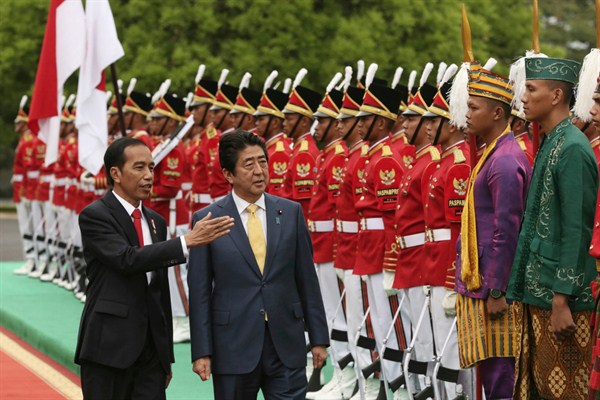Japan’s prime minister, Shinzo Abe, began the year with a weeklong tour of Southeast Asia and Australia earlier this month. The trip, which was planned in relative haste following the stunning election of Donald Trump as president of the United States last November, was an opportunity for Abe to try and impress upon Southeast Asian countries the importance of maintaining and defending international norms and laws, especially in the disputed waters around Southeast Asia.
Abe visited the Philippines and Vietnam, two states with the most contested territorial disputes with China in the South China Sea. Abe also visited Indonesia, the largest state in the Association of Southeast Asian Nations (ASEAN).
Abe’s vision for the region as a necessary bulwark against China’s aggressive behavior in the East and South China Seas has become even more pressing amid concerns of U.S. retrenchment under Trump, marked first by his decision to formally withdraw the U.S. from the Trans-Pacific Partnership (TPP). The huge, 12-country trade agreement was viewed as the signature economic element of former President Barack Obama’s “pivot” to Asia. Trump has eschewed a multinational approach to U.S. relationships in the region and instead seems content to focus on more transactional, bilateral outreach, no matter the consequences.

